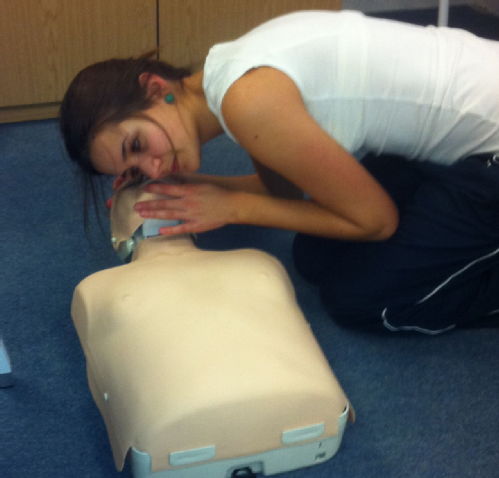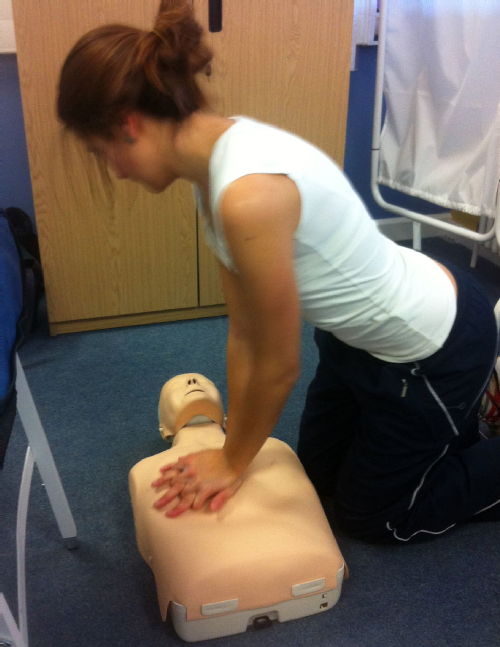OSCE assessment prep

The dreaded formative OSCE has arrived.
Even though I know that the purpose of the formative is to help me assess where I am in my learning and to identify any areas of weakness before the scary summer summative, and in the grand scheme of things, it doesn’t really matter if I fail; I can’t help but feel absolutely terrified. A few blog posts ago I said that I was really enjoying the clinical skills sessions and optimistically I said I thought I was quite good (really just not absolutely abysmal). I take it all back. It’s funny how you go along thinking “actually I’m alright at this stuff, I can do it” and as soon as you get close to an exam time, you forget everything. It’s like I never practiced at all. My fingers are no longer able to unscrew the valve on my sphygmomanometer, my hands aren’t big enough to support an elbow and my stethoscope is definitely broken, hence the lack of clear Korotkoff sounds. Of course - a poor workman always blames his tools.
Despite my sheer terror, practicing has actually been quite fun. Our front room has been turned into an examination room, the sofa providing a more than adequate substitute hospital bed. We’ve been doing practice resuscitation on a borrowed dummy, disrupting a silent BioMed Grid, with calls for help and had endless blood pressures taken, never having the same reading twice. Have you ever practiced walking in to a room and introducing yourself before? It’s so frustrating that we do it every day and it’s so simple but because the context changes and we feel under pressure, saying your own name - “Hi, I’m Amy Barrett”, becomes quite a significant achievement. Usually I get at least part of my name right and sometimes I remember to identify the patient, so really I’m about half way there. A few more hours in front of the mirror and I should nail it.

I’ve enjoyed practicing history taking the most. My housemates seem to have made it their mission to come up with the most ridiculous back stories and ludicrous set of symptoms no clinician has ever seen. Then again, anything is possible when it comes to patients. I’ve spoken to a few people now who have done their OSCE and all have had completely different experiences. A couple said it was “the worst thing ever”, some said “ahh it was alright” and one person actually said “it was really good” so well done them and thanks for that little bit of positivity! I would guess that most people will have done a similar amount of preparation. We’ve all had the same clinical skills sessions, and have plenty of people around us to practice with. I think the greatest variable is each individual’s confidence on the day. It’s horrible when you’re nervous and when it gets too much, that’s when things start to go wrong. I think we just need to learn to laugh at ourselves (when appropriate of course) and move on from our mistakes. I’m sure the OSCE examiners have seen the most ridiculous performances over the years*. It’s much better to do something silly now, with the opportunity to ensure it’s right for next time, than sit the summative and end up looking like a Chuckle brother.
So - I’ll try not to be too nervous and hopefully, with a bit more practice, I’ll be in a pretty good position. I’ve decided I’m going to enjoy my OSCE - at least maybe once it’s over.
I’ll see you on the other side.
Amy
*There was a rumour of someone actually hitting a patient on the head with a tuning fork, though I cannot verify the authenticity of this claim! It can’t be any worse than that can it?
 Sarah Hill
Sarah Hill

 Loading…
Loading…

Add a comment
You are not allowed to comment on this entry as it has restricted commenting permissions.